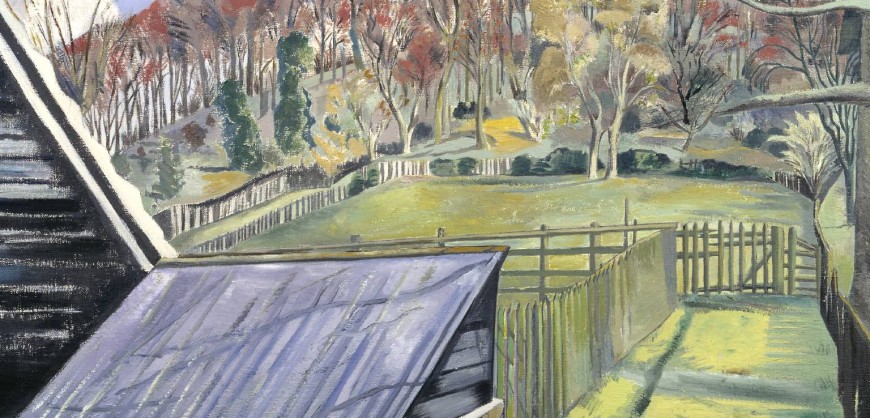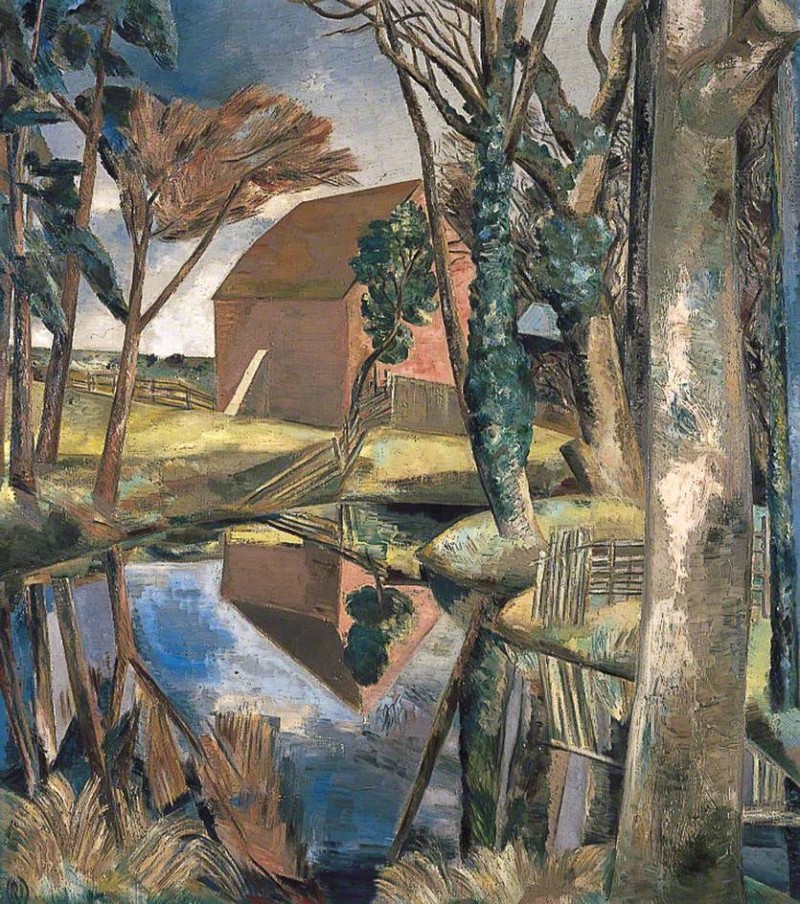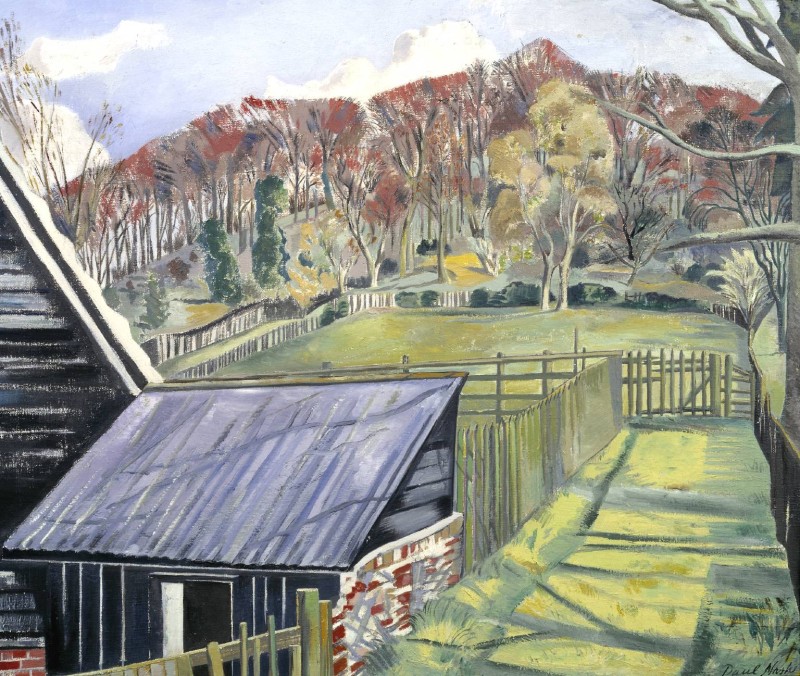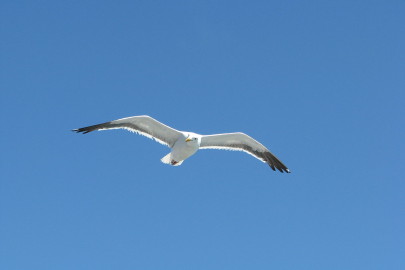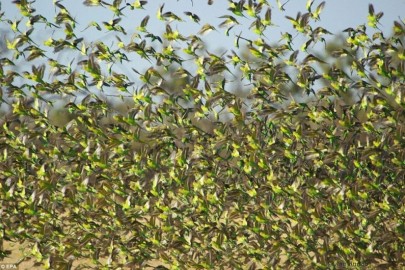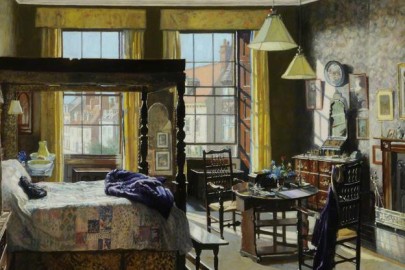Today’s poetry and painting piece features Edward Thomas, Paul Nash, W.H. Davies and birds’ nests…
In addition to their intrinsic beauty, the bare trees of late winter and early spring offer an opportunity for the discovery of birds’ nests. This thought brings to mind Edward Thomas, who was a great searcher for, and lover of, nests.
In a marvellous coincidence, Thomas met Paul Nash in the spring of 1916 at Hare Hall Camp, where Thomas was serving as a map-reading instructor. On May 21, he wrote to Robert Frost: “I was with a young artist named Paul Nash who has just joined us as a map reader. He is a change from the 2 schoolmasters I see most of. . . . He is wonderful at finding birds’ nests.” Edward Thomas, Selected Letters (edited by R. George Thomas) (Oxford University Press 1995), page 126.
It is lovely (and poignant) to think of Thomas and Nash going for walks together in the countryside during their time off, discovering nests.
Birds’ Nests
The summer nests uncovered by autumn wind,
Some torn, others dislodged, all dark,
Everyone sees them: low or high in tree,
Or hedge, or single bush, they hang like a mark.
Since there’s no need of eyes to see them with
I cannot help a little shame
That I missed most, even at eye’s level, till
The leaves blew off and made the seeing no game.
‘Tis a light pang. I like to see the nests
Still in their places, now first known,
At home and by far roads. Boys knew them not,
Whatever jays and squirrels may have done.
And most I like the winter nest deep-hid
That leaves and berries fell into:
Once a dormouse dined there on hazel-nuts,
And grass and goose-grass seeds found soil and grew.
Edward Thomas The Annotated Collected Poems (Bloodaxe Books 2008)
W. H. Davies and Edward Thomas were friends. Thomas supported Davies financially when he was impoverished, even though Thomas and his family were themselves always struggling to make ends meet.
Killed in Action
(Edward Thomas)
Happy the man whose home is still
In Nature’s green and peaceful ways;
To wake and hear the birds so loud,
That scream for joy to see the sun
Is shouldering past a sullen cloud.
And we have known those days, when we
Would wait to hear the cuckoo first;
When you and I, with thoughtful mind,
Would help a bird to hide her nest,
For fear of other hands less kind.
But thou, my friend, art lying dead:
War, with its hell-born childishness,
Has claimed thy life, with many more:
The man that loved this England well,
And never left it once before.
W. H. Davies, Forty New Poems (1918)

